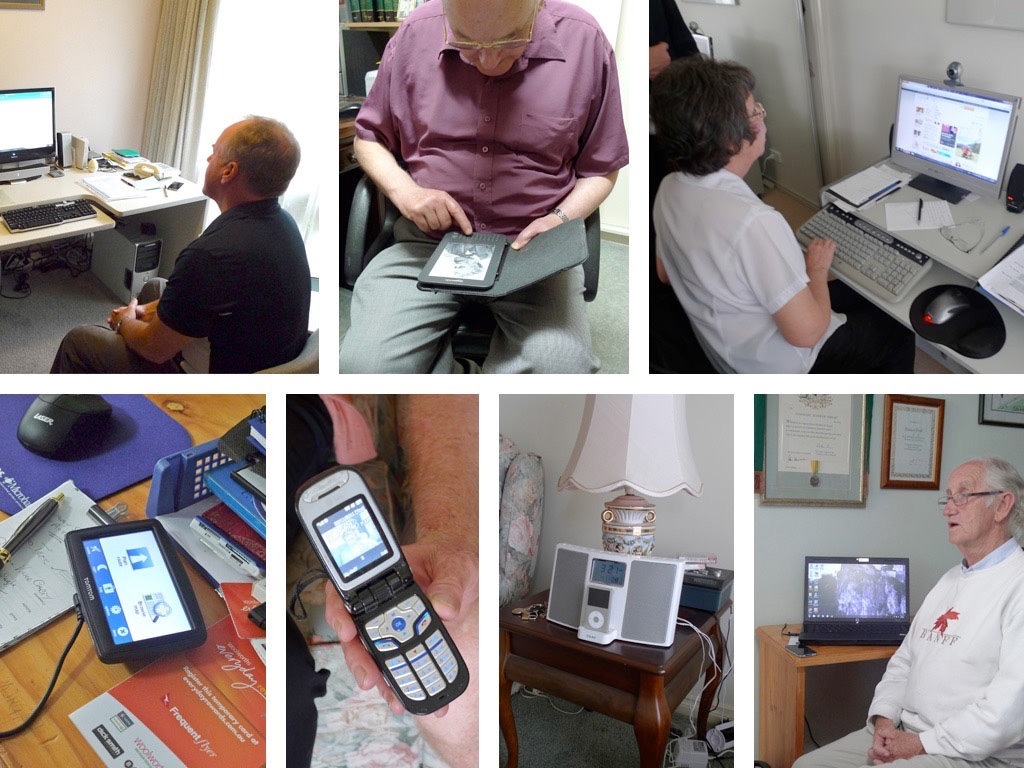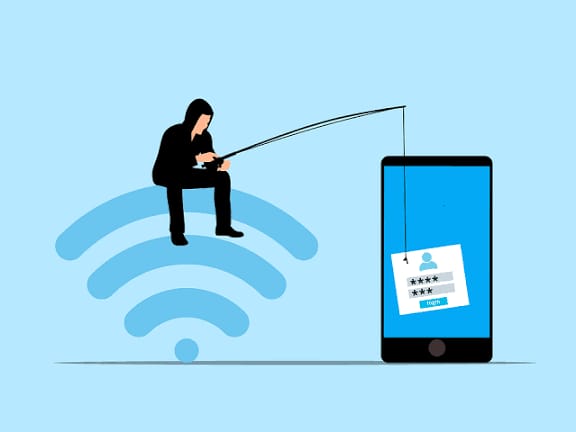
Are You Sharing Too Much? The Hidden Cyber Risks of Oversharing Online"
In an era of constant connectivity, sharing personal information online is commonplace. But with this convenience comes risk—this article explores the cyber dangers of oversharing and how to protect yourself.
✨ Raghav Jain

Introduction: The Allure of Sharing Online
In the digital age, sharing has become second nature. Whether it's a quick status update on social media, posting photos of your vacation, or revealing personal opinions online, the world has never been more connected. However, this seemingly harmless sharing culture comes with significant risks.
Oversharing on the internet can expose personal information to cybercriminals, stalkers, and even businesses looking to exploit our data. While the desire to connect and share moments with others is natural, the line between what's safe to share and what's too much can be blurry. In this article, we'll explore the dangers of oversharing online, examining the potential consequences and offering tips on how to protect yourself from the growing cyber threats tied to digital oversharing.
The Rise of Oversharing: Why Are We Sharing So Much?
1. The Social Media Boom
Over the last two decades, social media platforms have revolutionized the way people communicate. Sites like Facebook, Instagram, Twitter, and TikTok encourage users to share personal moments, milestones, and opinions. With the tap of a screen, we can let the world in on the most intimate details of our lives, from birthday celebrations to daily routines. But social media's design is intentional—it thrives on engagement, and engagement often requires sharing.
2. The Desire for Validation
Humans are inherently social creatures, and in today's online world, we seek validation from our digital communities. Likes, comments, and shares provide a sense of approval and belonging. This desire for approval often leads to oversharing personal information, as people feel compelled to post more to increase their social visibility.
3. The Blurring of Personal and Professional Lives
Platforms like LinkedIn, which were originally created for professional networking, have merged with personal accounts, making it harder to draw a clear line between private and public life. Individuals now share career updates, personal achievements, and even personal struggles, often without realizing the cyber risks involved.
The Cyber Risks of Oversharing: How Personal Information Becomes a Target
1. Identity Theft
One of the most dangerous consequences of oversharing online is identity theft. Cybercriminals thrive on personal data like names, addresses, birthdays, phone numbers, and email addresses—information that many users voluntarily post on social media or websites. Armed with this data, criminals can open fraudulent accounts, take out loans, or commit other forms of financial fraud in someone else’s name.
For example, a hacker could piece together your birthday, pet's name, and place of birth—information often used for security questions—and gain access to your online accounts.
2. Phishing Attacks
Phishing is a cyber attack where criminals impersonate legitimate organizations or contacts to extract sensitive information like passwords, banking details, or credit card numbers. Oversharing can unwittingly provide these criminals with the details they need to craft convincing phishing attempts. If a hacker knows your recent vacation spots, job changes, or favorite activities, they can create highly specific phishing emails that seem legitimate, tricking you into providing your personal information.
3. Geotagging and Location Tracking
Many people share real-time updates and geotagged photos on social media without considering the risks. Posting your exact location, whether you're at home, on vacation, or out with friends, can make you vulnerable to burglary, stalking, or harassment. Criminals can track your movements and learn when you’re most likely away from home, putting your personal safety at risk.
Real-World Examples of Cybersecurity Threats Linked to Oversharing
1. The Instagram Stalker: A Case Study
One infamous case involved an Instagram influencer whose posts provided detailed information about her life, including photos of her luxury items, travel destinations, and personal life. A stalker used this publicly shared information to track her movements and eventually show up uninvited at her home. The influencer's sharing habits made it easier for the stalker to gauge her whereabouts and plan his actions.
This case highlights the real-world implications of oversharing and how something as seemingly innocent as an Instagram post can lead to serious safety concerns.
2. The Target Data Breach
In 2013, hackers gained access to millions of customer records at retail giant Target, reportedly by exploiting vulnerabilities in a third-party vendor's system. While this incident isn't directly tied to oversharing, it highlights how personal data can be leveraged for malicious purposes. For many individuals, online sharing contributes to the creation of a digital footprint, which can be targeted and exploited.
The Psychology Behind Oversharing: Why It's Hard to Stop
1. The Fear of Missing Out (FOMO)
The rise of platforms like Facebook and Instagram has created an environment where people constantly compare themselves to others. FOMO, or the fear of missing out, encourages individuals to share more of their lives online to keep up with their peers. The urge to "fit in" often overrides concerns about privacy, leading to oversharing that exposes individuals to cyber threats.
2. The Illusion of Privacy
Many people believe that their online profiles are private when, in reality, they may not be. Platforms may provide privacy settings, but these settings are often difficult to configure, and they can change without notice. Users may assume that only their friends or followers can see their posts, not realizing that cybercriminals, advertisers, and even law enforcement may have access to their information.
3. The Addiction to Social Validation
The instant gratification of receiving likes, comments, and shares can create a cycle of addiction to social validation. This addiction reinforces the behavior of oversharing, as individuals seek approval from others. As the number of shares and likes increase, users feel more compelled to keep posting, despite the inherent risks involved.
How Oversharing Affects Businesses and Organizations
1. Social Engineering and Targeted Attacks
Employees who overshare on social media are more vulnerable to social engineering attacks. Hackers can exploit personal details shared by employees to impersonate them or gain access to company systems. For example, a hacker may learn about an employee's recent business trip and send them a fake email about a meeting, hoping to trick them into clicking on a malicious link.
2. Data Mining and Exploitation
Many businesses collect and analyze personal data, including the information shared on social media, to build detailed customer profiles. While this data is often used for marketing purposes, it can also be exploited for less ethical practices, such as influencing political opinions or manipulating consumer behavior. Oversharing can contribute to this growing trend of data mining, where companies harvest information about individuals without their full consent.
The Fine Line: What’s Safe to Share Online?
1. Personal vs. Public Information
Understanding the difference between personal and public information is key to protecting yourself online. Personal information should remain private, while general information that doesn’t compromise your security (such as work achievements or public events) can be shared more freely. Always consider the potential consequences of sharing specific details before posting them.
2. The Role of Privacy Settings
While no online platform can guarantee 100% privacy, using privacy settings can help control who has access to your posts and personal details. Make sure to regularly update your settings to limit the audience for your content. Remember, it's also crucial to review the privacy policies of platforms to understand how your data is being used and shared.
3. The Importance of Mindful Sharing
Mindful sharing means being intentional about what and when you share. Before posting personal information, ask yourself: "Do I really want everyone to know this? What could be the potential risks?" Taking a few seconds to think about the consequences of oversharing can prevent serious security breaches.
Strategies to Avoid Oversharing and Mitigate Cyber Risks
1. Limit Geotagging and Location Sharing
Avoid sharing real-time location details, especially when you're not home. This can significantly reduce the risk of burglary and stalking. If you must share a location, wait until after you've left the area to do so.
2. Protect Your Accounts with Strong Passwords and Two-Factor Authentication
A robust password and two-factor authentication (2FA) can provide an added layer of security for your online accounts. This is especially crucial for accounts where sensitive information, such as banking or personal communications, is stored.
3. Review Your Social Media Connections
Limit your social media connections to people you actually know. Avoid adding strangers who could use your publicly shared information against you. Also, regularly audit your social media friends and followers to ensure you're not oversharing with the wrong audience.
The Impact of Oversharing on Digital Footprints
1. The Permanent Nature of the Internet
Once something is shared online, it can be almost impossible to remove. Even if you delete a post or image, it may still exist in cached versions, screenshots, or archives. This permanence can have serious long-term consequences, especially for those who share highly personal or sensitive information without considering the future repercussions. A single impulsive post could come back to haunt you years later in a job interview, public reputation, or in extreme cases, lead to identity theft or harassment.
2. Digital Footprints and the Growing Risk of Profiling
Every online action—whether it’s a post, like, or search—leaves behind a digital footprint. Companies and advertisers use this data to build detailed profiles of individuals, targeting them with personalized ads. While this is often seen as an inconvenience or annoyance, it poses a deeper risk when such profiles are misused or fall into the wrong hands. Hackers, for example, could use data from your digital footprint to launch more personalized and effective social engineering attacks.
Moreover, the information people share can paint an intimate portrait of their lives, making them vulnerable to profiling by malicious actors. These profiles can include everything from your political leanings to your shopping habits, which could be exploited by cybercriminals for malicious purposes.
3. Oversharing in the Workplace
In the professional context, oversharing can also have severe consequences. Many employees inadvertently share company-related information on social media, either through posts or comments, which can lead to intellectual property theft or breaches of confidentiality. For instance, an employee posting about an upcoming product launch could inadvertently reveal sensitive information that competitors could exploit. This type of inadvertent leaking not only damages the company’s security posture but also exposes employees to risks like reputation damage or even termination.
4. Oversharing and the Data Broker Industry
Oversharing also contributes to the growing industry of data brokers—companies that collect, analyze, and sell personal data. These brokers buy and sell information about individuals from various sources, including social media platforms, online surveys, and public records. By oversharing on social platforms, individuals unknowingly feed into this data economy. While some of this data may be benign, other information could be used to manipulate behavior, influence purchasing decisions, or even fuel political campaigns.
The Dangers of Oversharing for Children and Teens
1. The Vulnerability of Younger Audiences
Children and teenagers are particularly vulnerable when it comes to oversharing online. Many young users don’t fully understand the long-term impact of sharing personal details on platforms like Instagram, Snapchat, or TikTok. The appeal of gaining followers or receiving attention from peers often outweighs concerns about security and privacy.
For instance, many children post photos that reveal their school, home address, or even their family members’ names. This kind of information is gold for cybercriminals who can use it for social engineering attacks, identity theft, or even targeted harassment. Additionally, the rise of cyberbullying and online predation has made it more important than ever for both parents and young users to be cautious about what they share online.
2. Sexting and Online Exploitation Risks
Sexting has become a significant issue in the world of teen oversharing, with many young people sending intimate pictures or texts to others, often without fully considering the consequences. Once shared, these images or messages can be easily distributed or even hacked, leading to reputational damage, emotional distress, or blackmail.
The emergence of revenge porn and online exploitation of minors has added another layer of concern. Cybercriminals can exploit images, messages, or videos shared in good faith, making it critical to teach young people about the risks of oversharing in the digital space.
How to Educate Yourself and Others About Online Oversharing
1. Digital Literacy: A Key Skill for Protection
Education about the risks of oversharing and online privacy should be an essential part of digital literacy. In schools, workplaces, and homes, individuals must learn to identify what constitutes oversharing and the potential dangers involved. Workshops, seminars, and educational content are vital tools to increase awareness about the privacy risks associated with social media and online behavior.
Parents should educate their children about the importance of digital boundaries and the potential harm of oversharing. Setting clear guidelines on which personal information is appropriate to share and what should remain private can help minimize the risks. For example, advising children never to share their school name, location, or personal routines on social platforms is a good starting point.
2. Privacy Settings and Security Tools
Many social media platforms offer privacy settings that allow users to control who can see their posts, who can follow them, and who can message them. Understanding and utilizing these settings is one of the simplest ways to protect your privacy online.
Moreover, using virtual private networks (VPNs), encrypted messaging services, and two-factor authentication (2FA) can further protect sensitive information. These tools ensure that your personal data is shielded from malicious actors who could exploit your oversharing.
3. Be Skeptical of “Too Good to Be True” Offers
Many people overshare online because they are enticed by online deals, contests, or giveaways. Cybercriminals often disguise phishing attempts as promotions or rewards. If you receive an unsolicited offer for a "free" product or a "too good to be true" prize, take a step back before clicking any links. Cybercriminals often use these fake offers to collect personal information from unsuspecting victims.
The Role of Governments and Platforms in Addressing Oversharing Risks
1. Stricter Regulations for Data Privacy
Governments have a vital role in regulating online platforms and ensuring they take the necessary measures to protect users from oversharing and exploitation. Regulations like the European Union’s General Data Protection Regulation (GDPR) have been instrumental in pushing companies to be more transparent about how they use personal data.
Additionally, more needs to be done to hold social media platforms accountable for not only preventing oversharing but also ensuring users understand the risks of the information they share. Public awareness campaigns and mandatory privacy education could help bridge the knowledge gap.
2. Platform Accountability and Transparency
Social media companies and tech platforms should take proactive steps in educating their users about the risks of oversharing. This could include alerting users when they are about to share information that could be dangerous or notifying them of privacy risks in real-time. Platforms should also make it easier for users to delete old posts that could potentially compromise their privacy.
As the tech landscape evolves, platforms should be more accountable for the privacy of their users and be more transparent about how they use, store, and share personal information.
Conclusion: Protecting Your Privacy in an Oversharing World
In a world where sharing personal moments and opinions online has become second nature, it’s easy to overlook the potential dangers lurking behind seemingly innocent posts. The digital landscape offers incredible opportunities to connect, share, and learn, but it also brings with it significant cyber risks. From identity theft and phishing attacks to stalking and exploitation, oversharing can expose us to a range of dangers that often go unnoticed until it's too late.
As individuals, it’s essential to understand the value of our personal data and how easily it can be manipulated or exploited. What we share, who we share it with, and how we protect that information are all critical aspects of maintaining online safety. The risks associated with oversharing are not just about cybercriminals—they also extend to corporate data mining, unwanted surveillance, and personal reputations being permanently affected.
Taking steps to reduce oversharing online is the best way to protect yourself. Adjusting privacy settings, being mindful of what you post, and educating yourself about the tools and techniques available for protecting your data can make a significant difference. Similarly, educating children, teenagers, and employees about the potential risks associated with oversharing is crucial in safeguarding future generations from cyber threats.
Ultimately, while it’s impossible to avoid sharing altogether, it’s possible to do so responsibly. By understanding the consequences and implementing simple precautions, we can continue to enjoy the benefits of the digital world while minimizing the risks associated with oversharing. In the end, managing your online presence and data isn't just about protecting your privacy—it’s about protecting your digital future.
Q&A Section
Q: What exactly is oversharing online?
A: Oversharing refers to disclosing more personal information on social media or other online platforms than is necessary, which can lead to potential privacy risks and security vulnerabilities.
Q: How does oversharing affect my personal security?
A: By revealing details like your full name, location, or daily routines, you make it easier for hackers and malicious actors to gather data and potentially exploit it for identity theft or phishing attacks.
Q: Can oversharing on social media lead to identity theft?
A: Yes, oversharing sensitive details like birthdates, addresses, or even pet names can provide cybercriminals with enough information to access your accounts or commit fraud in your name.
Q: What are some examples of oversharing on social media?
A: Examples include posting your exact location in real-time, sharing personal events like vacations (while you're still away), or disclosing sensitive family information, which can increase the risk of stalking or burglary.
Q: How can I secure my social media accounts against oversharing?
A: You can enhance your security by adjusting privacy settings, using strong passwords, enabling two-factor authentication, and being selective about who can view your posts and personal information.
Q: Should I stop sharing personal information online entirely?
A: While it’s not necessary to stop sharing altogether, you should be mindful of what and how much you disclose. Limit sensitive personal data and always assess the potential consequences before posting.
Q: How can I protect my children from the dangers of oversharing online?
A: Educate your children about the risks of oversharing and establish rules regarding what they can share online. Monitor their online activity and ensure they understand the importance of privacy.
Q: Are online platforms responsible for protecting my privacy?
A: Online platforms have a responsibility to protect your data through strong security measures. However, the ultimate responsibility for privacy lies with users, who must take steps to protect their own information.
Q: What are the best privacy settings I can enable on social media?
A: You should adjust your social media settings to limit who can view your posts, restrict who can send you friend requests or messages, and disable geotagging or location sharing by default.
Q: What should I do if I suspect I’ve been targeted due to oversharing?
A: If you suspect you've been targeted, change your passwords immediately, enable two-factor authentication, and monitor your accounts for any suspicious activity. Consider contacting the platform for support and reporting any fraudulent behavior.
Similar Articles
Find more relatable content in similar Articles

Digital inclusion: designing d..
Designing technology for elder.. Read More

From Phishing to Data Theft: ..
Cybercrime in India is evolvi.. Read More

Cloud PCs: Will Your Next Comp..
Cloud PCs are transforming the.. Read More

Digital Privacy in 2025: How S..
In 2025, digital privacy faces.. Read More
Explore Other Categories
Explore many different categories of articles ranging from Gadgets to Security
Smart Devices, Gear & Innovations
Discover in-depth reviews, hands-on experiences, and expert insights on the newest gadgets—from smartphones to smartwatches, headphones, wearables, and everything in between. Stay ahead with the latest in tech gear
Apps That Power Your World
Explore essential mobile and desktop applications across all platforms. From productivity boosters to creative tools, we cover updates, recommendations, and how-tos to make your digital life easier and more efficient.
Tomorrow's Technology, Today's Insights
Dive into the world of emerging technologies, AI breakthroughs, space tech, robotics, and innovations shaping the future. Stay informed on what's next in the evolution of science and technology.
Protecting You in a Digital Age
Learn how to secure your data, protect your privacy, and understand the latest in online threats. We break down complex cybersecurity topics into practical advice for everyday users and professionals alike.
© 2025 Copyrights by rTechnology. All Rights Reserved.